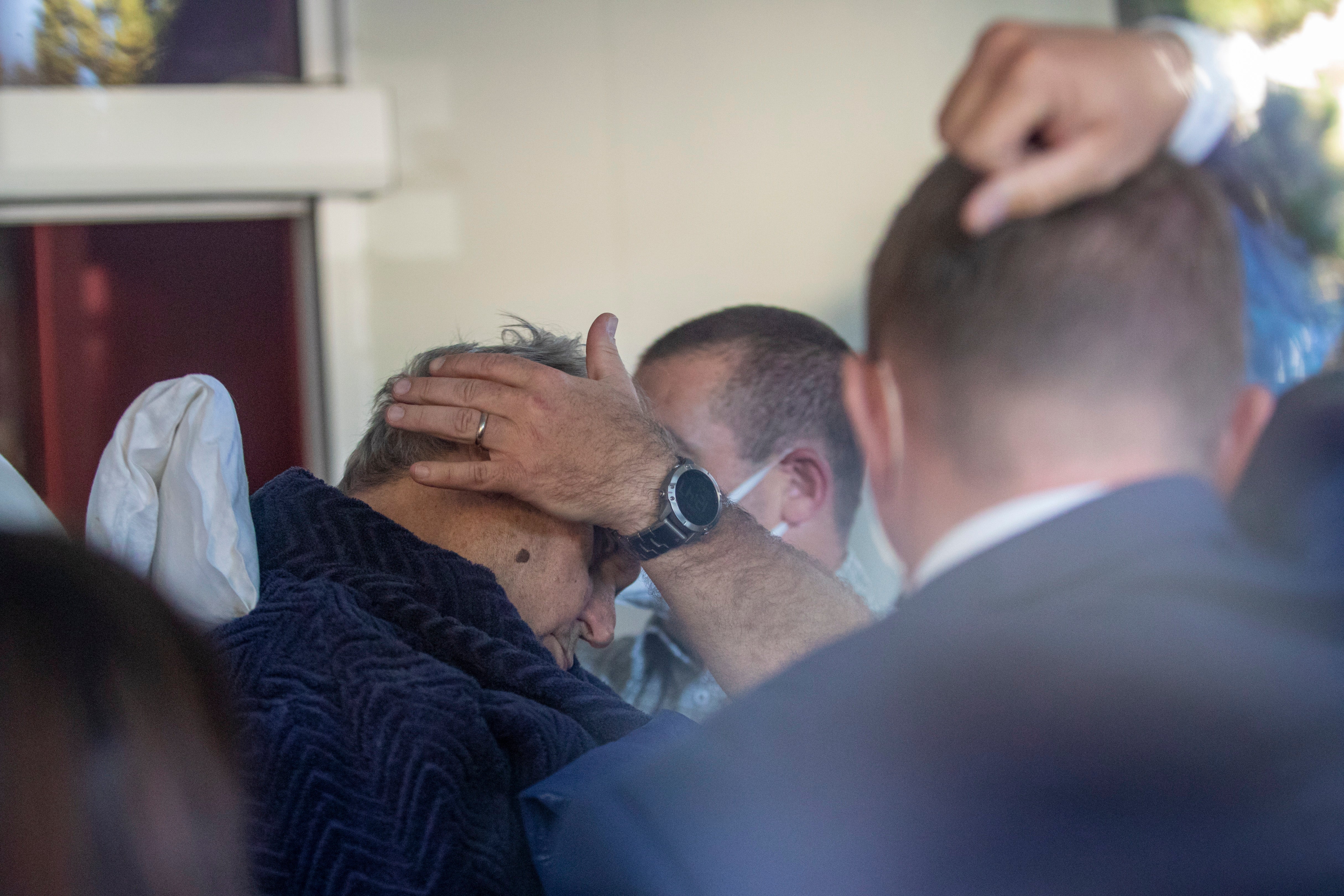Talks to form Czech Republic government continue as president remains in hospital
Opposition MPs are calling for a consensus on forming the new administration, without the president’s input

Your support helps us to tell the story
From reproductive rights to climate change to Big Tech, The Independent is on the ground when the story is developing. Whether it's investigating the financials of Elon Musk's pro-Trump PAC or producing our latest documentary, 'The A Word', which shines a light on the American women fighting for reproductive rights, we know how important it is to parse out the facts from the messaging.
At such a critical moment in US history, we need reporters on the ground. Your donation allows us to keep sending journalists to speak to both sides of the story.
The Independent is trusted by Americans across the entire political spectrum. And unlike many other quality news outlets, we choose not to lock Americans out of our reporting and analysis with paywalls. We believe quality journalism should be available to everyone, paid for by those who can afford it.
Your support makes all the difference.Negotiations on the formation of a new Czech coalition government continued on Monday despite being thrown into uncertainty after President Milos Zeman was taken to intensive care.
Debates are now raging about the constitutional necessity of the president’s role in post-election talks. After the Spolu coalition won the election at the weekend, opposition MPs are urging a consensus on a new government without Zeman’s input.
The centre-right Spolu (Together) alliance took 27.8 per cent of the vote with incumbent prime minister Andrej Babis‘s party, ANO, taking 27.1 per cent.
Meanwhile, the Czech Pirate and Stan parties, another anti-Babis alliance, took 15.5 per cent of the vote. Together, the two coalitions could command a slender majority in the country’s parliament.
But with ANO remaining the single largest party in terms of seats won – Zeman had promised to give the leader of the largest single party the first chance to try to form a government after the election – there was some doubt over who would get an opportunity to fashion a new administration.
When the president was rushed to intensive care on Sunday afternoon, the nation entered a state of suspended animation.
Yet constitutional lawyers argue a new government can be agreed in principle without the president’s involvement.
They say that if Zeman is unable to participate in talks, the current government can continue in power until 30 days after the election. The new parliament would then be convened and a new speaker of the house elected.
If the president is still incapacitated at that time, responsibility for appointing a new prime minister would likely fall on the speaker of the house.
Zeman was expected to play a major role in the formation of a new government after Spolu’s victory. But shortly after meeting with current prime minister Andrej Babis on Sunday morning, an ambulance rushed him to a Prague hospital.
Footage appeared to show the 77-year-old in a state of helplessness as he entered intensive care over complications relating to pre-existing health problems.
Doctors said on Monday that Zeman’s condition had stabilised. But uncertainty about when he will be capable of performing his presidential function has put a new complexion on post-election talks.
A limited role for Zeman could deliver a final blow to Babis’s hopes of remaining in power.
The controversial billionaire leader stopped short of conceding defeat on Saturday, as a quirk in the Czech proportional representation system left ANO with one more seat in the new parliament than Spolu, despite gaining fewer votes.
And before the results were known, former presidential candidate Karel Schwarzenberg predicted that Zeman would do his utmost to allow Babis to stay on as leader.
“He will certainly entrust Mr. Babis (with forming a government), and will try to drag out the situation until the end of his presidency (in 2023),” Schwarzenberg predicted.
Yet since he is unable to command a majority in parliament even with the support of the far-right SPD, Babis’ options are limited.
The ANO leader said that negotiations would be explored with individual Spolu members in the hope that some might break ranks. But Spolu’s declaration of intent to form a government with the Pirates+Stan coalition – which includes a pledge that none of the individual parties will negotiate with Babis – gives opposition MPs little reason to betray their cause.
“The prime minister should be the person who can deliver a majority in parliament. This must be someone from the coalitions. Any other outcome would be against the will of the electorate,” Benjamin Roll, chair of the Million Moments for Democracy anti-Babis campaigning organisation, told The Independent.



Join our commenting forum
Join thought-provoking conversations, follow other Independent readers and see their replies
Comments